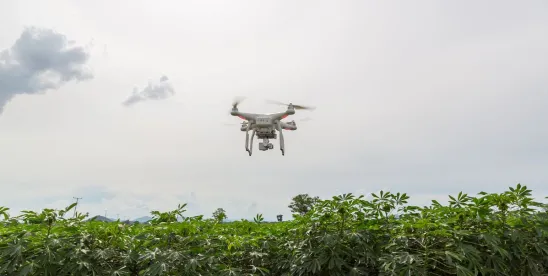In a surprising move, China-based DJI, the world’s largest drone manufacturer, is not flinching at the prospect of tighter U.S. restrictions on Chinese drone companies. In fact, they’re embracing it.
Currently, the Trump administration is finalizing executive orders that would affect the commercial drone landscape in the U.S., which could be set for a serious shake-up. These potential measures would require companies like DJI, and its competitor Autel, to undergo national security reviews before selling new drone models in the U.S.
You might think DJI would be sounding the alarm—but instead, they’re rolling out the welcome mat. “DJI welcomes and embraces any opportunities to demonstrate our privacy controls and security features,” explained a company spokesperson.
The company has been submitting its systems for independent security audits since 2017. Evaluations from heavyweights like Booz Allen Hamilton, FTI Consulting, and even U.S. government bodies like the Department of the Interior and Idaho National Laboratory have come to a consistent conclusion: DJI’s drones are secure, and there’s no evidence of data being transmitted to unauthorized entities—including the Chinese government.
The legal spotlight is now on Section 1709 of the FY2025 National Defense Authorization Act. This provision requires a designated national security agency to determine—within a year—whether DJI’s equipment presents an “unacceptable risk” to U.S. national security.
If that assessment isn’t completed within the deadline, DJI could end up on the FCC’s Covered List by default, effectively barring them from launching new products in the U.S.
So, yes, the stakes are high. But DJI seems ready to bet on its track record.
In response to longstanding concerns over data privacy and national security, DJI has introduced several robust features aimed at giving control back to users:
- Local Data Mode: Operates like an air-gapped device—no internet, no data leakage.
- Default Data Settings: No automatic syncing of photos, flight logs, or videos.
- Third-party software compatibility: Users can fly DJI drones and analyze data using U.S.-based software, without touching DJI’s ecosystem.
- DJI no longer allows U.S. users to sync flight records to its servers.
“Unlike our competitors, we do not force people to use our software,” DJI spokesperson pointed out.
While the upcoming executive orders are designed to boost domestic drone production and address national security risks, DJI is using the moment to double down on its commitment to transparency. Their message is clear: judge us by the tech, not the passport.
Whether that’s enough to maintain access to the U.S. market will depend on how these reviews play out—and how political winds blow in the coming months.
But one thing’s for sure: DJI isn’t backing down. It’s gearing up for inspection—and maybe even looking forward to it.
Stay tuned as we track legal developments on this issue and how it could reshape the drone industry in the U.S.



 />i
/>i

